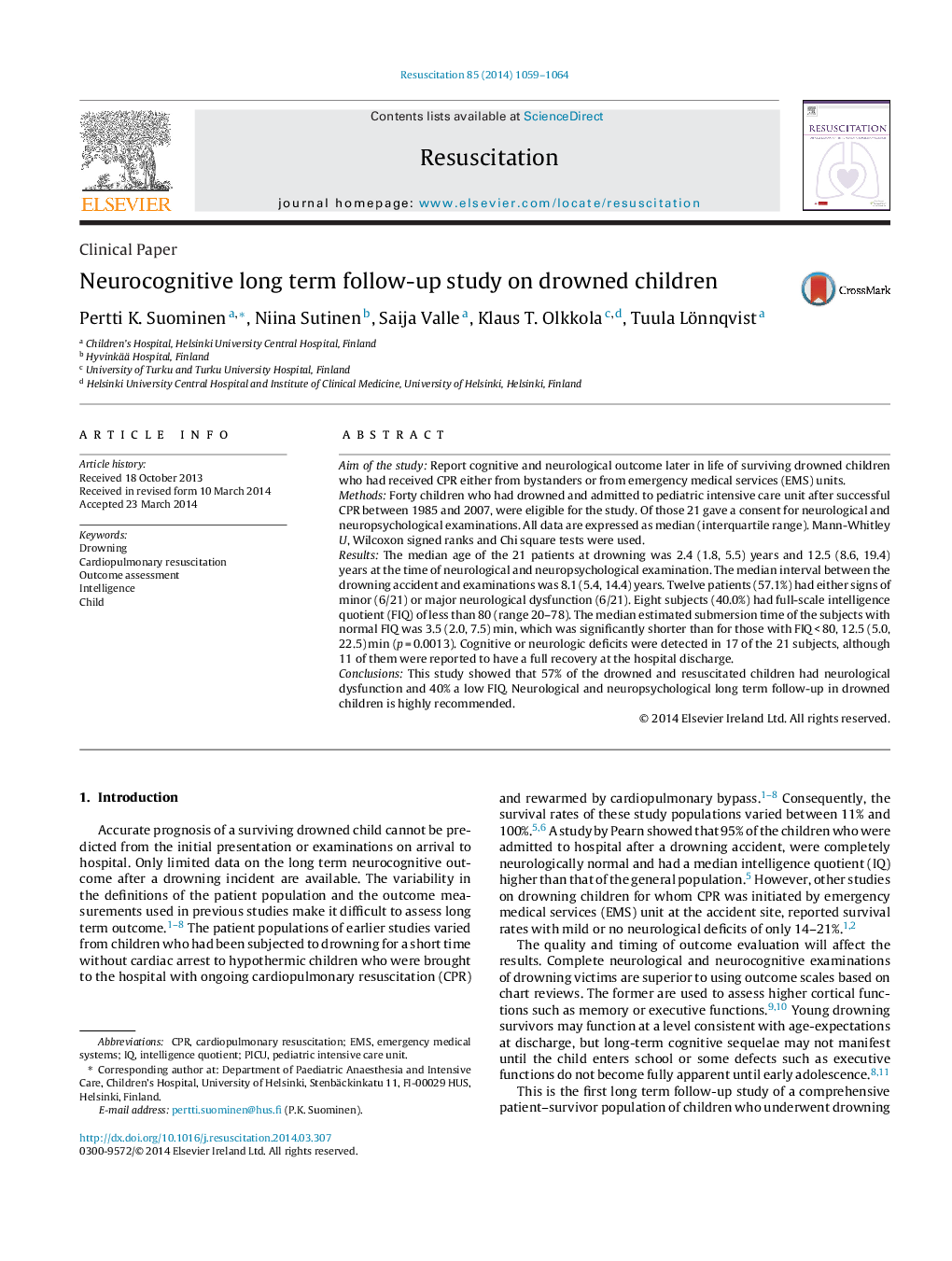| Article ID | Journal | Published Year | Pages | File Type |
|---|---|---|---|---|
| 5998107 | Resuscitation | 2014 | 6 Pages |
Aim of the studyReport cognitive and neurological outcome later in life of surviving drowned children who had received CPR either from bystanders or from emergency medical services (EMS) units.MethodsForty children who had drowned and admitted to pediatric intensive care unit after successful CPR between 1985 and 2007, were eligible for the study. Of those 21 gave a consent for neurological and neuropsychological examinations. All data are expressed as median (interquartile range). Mann-Whitley U, Wilcoxon signed ranks and Chi square tests were used.ResultsThe median age of the 21 patients at drowning was 2.4 (1.8, 5.5) years and 12.5 (8.6, 19.4) years at the time of neurological and neuropsychological examination. The median interval between the drowning accident and examinations was 8.1 (5.4, 14.4) years. Twelve patients (57.1%) had either signs of minor (6/21) or major neurological dysfunction (6/21). Eight subjects (40.0%) had full-scale intelligence quotient (FIQ) of less than 80 (range 20-78). The median estimated submersion time of the subjects with normal FIQ was 3.5 (2.0, 7.5) min, which was significantly shorter than for those with FIQ < 80, 12.5 (5.0, 22.5) min (p = 0.0013). Cognitive or neurologic deficits were detected in 17 of the 21 subjects, although 11 of them were reported to have a full recovery at the hospital discharge.ConclusionsThis study showed that 57% of the drowned and resuscitated children had neurological dysfunction and 40% a low FIQ. Neurological and neuropsychological long term follow-up in drowned children is highly recommended.
